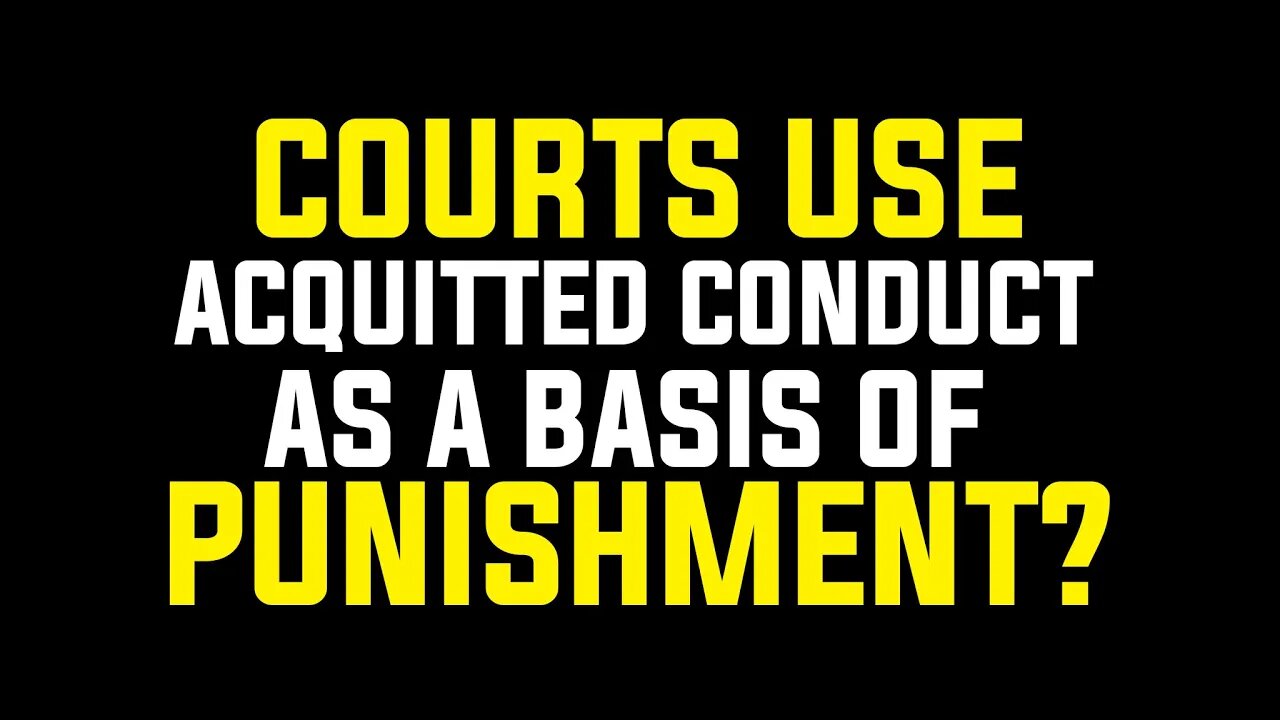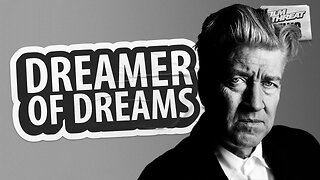Premium Only Content

Courts use acquitted conduct as a basis of punishment?
Under our Constitution, the jury trial is supposed to be the basis of criminal adjudication. The Liberty of taxpayer jurors has ever been known to be an essential structural analysis on legislative, executive acts, as well as judicial power. And that liberty has always involved a particular solicitude for prosecution acquittals, that might be supposed to have unassailable finality. Nevertheless prosecutors and judges do end-runs about that planned finality -- and consequently, around the jury trial itself through the pernicious practice of "acquitted conduct sentencing".
"Acquitted conduct sentencing" identifies this situation where a Judge sentences a defendant not only upon the fee for which they have been convicted, but also based upon alleged behavior underlying fees for which they had been acquitted. Common sense and fundamental constitutional principles would appear to dictate that the defendants be sentenced only on the grounds of the supply.
But the judge in that situation efficiently disagreed with the jury verdict, reasoned that the defendants did participate From the charged conspiracy, and sentenced them much more harshly than could otherwise have been justified. Though the Guidelines sentencing range for its supply fee would have "only" been around 27-71 weeks , the three defendants at Jones were finally sentenced to 180, 194, along with 225 months -- in character, penalizing them roughly four times more aggressively exclusively due to alleged behavior for which they had been acquitted.
Acquitted conduct sentencing isn't only unfair, but flagrantly unconstitutional. Even Though the Supreme Court has held This practice doesn't expressly violate the Double Jeopardy Clause , it's never addressed whether the practice violates either the Due Process Clauses of the Fifth and the Fourteenth Amendment, or the Sixth Amendment right to a jury trial. Nowadays, jury trials are all but replaced by guilty pleas since the baseline for offender adjudication, and there's considerable reason to doubt whether the majority of those pleas are genuinely voluntary. As Judge Patricia Millett of this D.C. Circuit recently clarified , "factoring acquitted conduct into sentencing decisions imposes almost insurmountable pressure on defendants to forgo their constitutional right to a trial by jury. Defendants will face all the risks of conviction, with no practical upside to acquittal unless they run the board and are absolved of all charges."
Precluding sentences according to acquitted conduct would consequently be quite a small but critical shield against the wholesale erosion of the jury trial .
Luckily, the Supreme Court and Congress will likely have Opportunities to describe that acquitted conduct sentencing is unjust and unconstitutional. To begin with, on the other hand, the cert request currently pending before the Court at Asaro v. United States significantly raises the issue of "whether the Fifth and Sixth Amendments prohibit a federal court from basing a criminal defendant's sentence on conduct underlying a charge for which the defendant was acquitted by a jury.»"The Cato Institute, Due Process Institute, National Association of Federal Defenders, and FAMM all filed briefs in support of the request, and there's excellent reason to consider that lots of these Justices will probably be curious. The two Justice Thomas and Justice Ginsburg joined the dissent from denial of certiorari from the Jones instance from 2014, where Justice Scalia explicitly called upon the Court to explain that acquitted conduct Treaty violates the Sixth Amendment, which the Court's history of evading that query "has gone on long enough." Justice Kavanaugh said when he had been a judge on the D.C. Circuit.
Key members of Congress are moving to remove acquitted conduct by Legislation.
-
 3:51:22
3:51:22
UncivilLaw
1 year agoTake Care of Maya - Post Verdict Hearings
2.24K1 -
 DVR
DVR
GOP
13 hours agoPresident Trump’s Celebratory Victory Rally
108K45 -
 8:46:00
8:46:00
Right Side Broadcasting Network
6 days agoLIVE REPLAY: President Donald J. Trump Holds Inauguration Eve Rally in Washington D.C. - 1/19/25
833K329 -
 2:27:15
2:27:15
vivafrei
19 hours agoEp. 246: Eve of Trump's Inauguration! Confirmation Hearings Analysis! TikTok Goes Dark & MORE!
220K138 -
 LIVE
LIVE
Vigilant News Network
14 hours agoBill Gates’ New Bioterror Project Exposed | Media Blackout
1,647 watching -
 7:56:34
7:56:34
Barry Cunningham
1 day agoWATCH LIVE: TRUMP INAUGURATION MAKE AMERICA GREAT AGAIN VICTORY RALLY - 1 DAY TO GO!!
91.7K64 -
 8:36
8:36
China Uncensored
17 hours agoIs China’s EV Industry Collapsing?
219K126 -
 4:17:00
4:17:00
Tundra Tactical
1 day ago $30.02 earnedSHOT SHOW 2025!!!!!! Whats Are We Looking Forward To Most
277K35 -
 22:53
22:53
Film Threat
1 day agoA TRIBUTE TO VISIONARY DIRECTOR DAVID LYNCH | Film Threat News
124K9 -
 20:30
20:30
Exploring With Nug
1 day ago $8.05 earnedMissing Father of 2 FOUND Underwater In Shallow Pond!
97K15